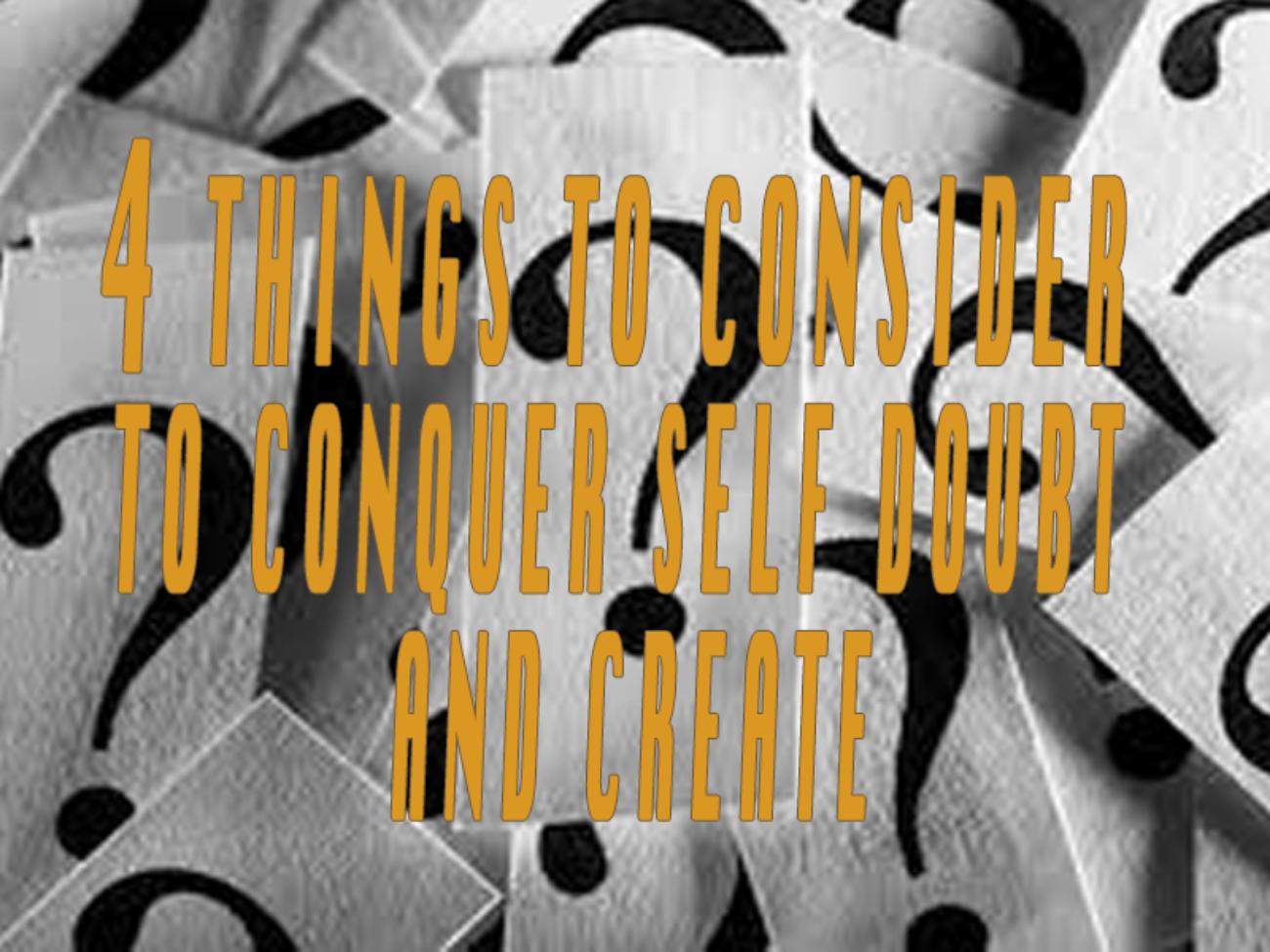Achickwitbeatz presents the Instrumental Intel podcast, bringing you information instrumental to your artistic career including music industry news & tips, insights & interviews, and beats for your inspiration. Listen on Saturdays at 7 pm EST on Grander Radio and Achickwitbeatz.com.
Follow on Facebook, Instagram, Twitter, YouTube Audiomack & SoundCloud, and subscribe on your favorite podcast platform. Download the Grander Media app to listen to Grander Radio on the go.
- Art
- Independent Labels
- Internet Radio
- Music Documentaries
- Album Reviews
- Music History
- Music Industry News
- Free Game Friday
- Free Downloads
- Poetry
- Books
- Interviews
- Did You See It?!
- Hip Hop History
- Hear Here
- Music News
- Hip Hop Documentaries
- Music Marvels Radio Show
- Think Piece Thursday
- Mini Documentaries
- Instrumental Intel
- Music Humor
- Indie Analysis
- Conversations & Quotables
- Music
- Resources for Artists
- Podcasts
- Beats/Instrumentals
- Music Education
00:01
Hey, thank you so much for tuning in to Instrumental Intel. I am your host, music producer, Achickwitbeatz. And I'm so glad that you've joined me today. I've got an episode that's got music industry news, instrumentals by me for your inspiration, and later, my special guest, MicWellz, will be joining me. We're gonna talk a little bit about pen game progression from punch lines to purpose, and it's going to be a great time. So I'm excited to be bringing this to you. And of course, as always, I gotta give a shout out to my home station.
00:29
Grander Radio out of Grand Rapids, Michigan. And with that, let's go!
00:47
[BEAT BREAK]
08:15
Hey, this is music producer Achickwitbeatz, and you're listening to my podcast Instrumental Intel.
08:40
[BEAT BREAK]
14:38
Hey, I’m back with the music biz brief. First up, music publishers including Universal, Concord, and ABKCO have filed an amended lawsuit against AI firm Anthropic, alleging mass copyright infringement for using and reproducing song lyrics without permission. The updated complaint cites internal chats and user data showing Claude, Anthropic's AI, repeatedly outputs copyrighted lyrics, sometimes even prompted by its own staff.
15:05
Publishers are pursuing four claims, including direct and vicarious infringement, and argue that Anthropic's so-called guardrails aren't stopping the violations. The company is valued at $61 billion, and it's backed by Amazon and Google and has again filed a motion to dismiss. A court hearing is set for July. Another interesting tidbit about that case, um...
15:29
A recent court filing revealed that one of Anthropix's expert reports included a citation that was generated by its own AI, containing made-up details like fake author and title. The company's attorney called it an honest citation mistake, blaming a missed error during a manual review. The judge called the incident very serious, highlighting growing concerns about the AI-generated misinformation within copyright cases. So we'll definitely keep an eye on what's going on there. Next.
15:57
Spotify co-founder Martin Lorentzon just sold $665.9 million worth of Spotify shares in under a week, with $658.6 million on May 21st alone. And all this was done through his holding company, Rosello. This follows a pattern. Lorentzon has now offloaded over $1.2 billion in stocks since 2024, despite still holding 9.8 % of the company and 41.6 % voting power.
16:25
CEO Daniel Ek is also slowly selling shares, bringing his total to about $808 million since mid-2023. All of this has been happening while Spotify posts strong earnings with subscriber growth and record operating income in the first quarter of this year. Also, the DOJ is conducting a criminal investigation into Live Nation and AEG over how they handle ticket refunds during the pandemic.
16:51
The probe focuses on a 2020 industry-wide initiative involving major promoters and booking agencies. Live Nation denies any wrongdoing, saying it acted independently and in good faith. The investigation is separate from the one about the antitrust case, which seeks to break up Live Nation and Ticketmaster. With a five-year statute of limitations on potential charges, the DOJ will need to make a decision soon. In somewhat related news, the FTC has issued a public warning to StubHub,
17:20
for allegedly violating the new U.S. rule requiring total ticket prices, including all mandatory fees, to be displayed upfront. The agency found instances where StubHub's listings didn't reflect the full cost, which could lead to fines of over $53,000 per violation. While this particular warning focused on NFL tickets, the rule applies to concerts, too, meaning music fans and artists should expect more transparent pricing across the board.
17:48
Alright, and that's a wrap for this week's music biz brief. I'm gonna take a quick pause for the cause, and then I'll be back with my special guest, MicWellz, right after this. Keep it locked!
[BEAT BREAK]
29:26
Hey, I'm Achickwitbeatz, multi-genre music producer and strategist to indie artists and labels. Visit achickwitbeatz.com for resources for artists and instrumentals in various genres available for songs, vlogs, blogs, podcasts, themes, TV, film, commercials, and more. Once again, that's achickwitbeatz.com. That's A-C-H-I-C-K-W-I-T-B-E-A-T-Z.com. Let's make something happen.
29:56
Hey, thank you so much for tuning in to instrumental Intel. I am your host, music producer, Achickwitbeatz. And I'm excited, thrilled, and delighted to say that I have in the virtual building with me today, MicWellz. You know, we do have a connection in common, but I'm not going to get to that right off the bat. But if you could give the people a little bit of an introduction as to who you are and how you got involved in music. Ah, OK.
30:23
Um, MicWellz, that's what I go by. Really, the full name, just Michael Wellington, but for short.
30:35
Who am I? That's a hard question to answer. That's a hard question to answer, especially as of late.
30:48
A music person, a writer. Yeah. If I had to boil it down, I would say a writer because I don't just write music, write like many things in a bunch of different genres. How I got into music, I was eight years old and my nephew was like, man, let's, let's,
31:15
Let's write a song. And I was like, you know what? All right, cool. Let's write a song. And then I never stopped. So from eight years old, and just kept going. That's amazing. All right. Okay. That's what's up. So yeah, the connection that I was alluding to earlier for the listeners, this is the brother of my brother. So yeah, people use ‘a brother from another mother’. I guess that's technically how that works. But yeah, so.
31:45
You know, we were talking about doing music and he mentioned, you know, how it's kind of, you know, went along with family. And so, yeah, for you to start doing that at eight, that's just, yeah, that's phenomenal. Yeah. Yeah. So, who were some of your early influences when you first got started? My first favorite rapper was Eminem. Now I look at him and I go, he trash.
32:14
But my first favorite rapper was Eminem. It went from Eminem to Ludacris and then to Nelly. And then from that point forward, was like Lauryn Hill, Erykah Badu, Lupe Fiasco, J. Cole.
32:42
Who was the next one? Because after like, I listened to J. Cole, like Friday Night Lights, like nothing but that for like two years straight. Oh, wow. And then after J. Cole, it was this rapper named Casey Veggies. People don't really know about him, but he was signed to Roc Nation. OK. His style had a significant impact on mine. And then from there,
33:11
I had to learn how to take in just any kind of sounding music, because I had great disdain for the Lil Yachtys and the Uzi Verts. Great disdain, okay. Hatred, if you will. I feel you on that. I got some artists that I kind of feel the same way about. But yeah, I kind of want to back up a little bit to
33:41
where you started with your influences and that transition. So first of all, let me say, I listened to all those artists. And so it's not that it's interesting that the transition happened, but to go from those to kind of crossing over to the neo soul, what kind of sparked that transition for you? My mom used to listen to Erykah Badu when she cleaned up the house.
34:10
She don't know she OCD, but she OCDs. She needs to clean the house all the time. So Erykah Badu just kind of slid in on in the radar. And then, like, if you listen to Erykah Badu more than likely, you also listen to the Fugees and the Miseducation of Lauryn Hill. Yeah. Yeah, absolutely. So like I was a little, little kid, like really around the time I started.
34:39
Write music. So I was a little, little kid, and I listened to those artists. Okay. Now, back, backing up to Eminem, I also was a fan initially in the beginning. I would not necessarily say that I am now, but I don't feel bad for the songs that I did. Like, let me put it that way. And even with Ludacris, like the artists that you mentioned that you liked first,
35:07
They were all really good at what they did when they came out. And it was something that was like a fresh take on what other people were doing. But, you know, it was kind of new and refreshing. Then after a while, it's like, okay, the newness kind of wears off. And then you're like, okay, this is what I'm left with. Like, how do you, guess, try, like when you're writing, how do you try to avoid falling in that trap? The trap of my influences affecting my music.
35:36
Well, yeah, but also making sure that you stay fresh and don't fall into that, where something, where you almost get the shock value, I guess, is probably the word I'm looking for with those other rappers. So at first, you know, they do something that's different, but then it's like they don't really know what else to do to keep your attention out there. Yeah. OK, so how do you stay fresh? Yeah. People.
36:02
get stagnant in music because they figure out a sound that, like, okay, this works. And then they just stick with that. They don't think about growing. They don't think about the direction of their music. For me personally, it took a long time for me to find anything that I could call like a style format. Like, it's a lot of people out here that can listen to like
36:31
Your project, you put out like a 20-song project. It's a lot of people that can listen to it and be like, okay, this is what this artist does. And then they can imitate that and put music out that sounds like your music. It took me a long time to get to a point to where somebody could listen to me and be like, okay, this is what he does. This is his bracket. It took me a long time to get to that point. And even though I'm at that point,
37:00
I'm still not completely there because like my music is all over the place. It's a good thing. Yeah. Like, like my project, what did I even name it? Cause at this point I'm writing music so fast that I can't keep up with it. See. Well, Shaun sent me the death of Michael Wellington. Yes, of Michael Wellington. Okay. So I wrote their project in a month.
37:30
Yeah, I wrote that project in a month. Some of the songs on there, let me see, one, I think, yeah, one song on there is very, very old. Like at least a decade, probably more. One song on there is old. Everything else on there is brand new and was like written, recorded, dropped, mixed, and mastered within a month.
37:58
Well, kudos to you. That's no easy feat. And also, even for the track that was at least a decade old, that's good just because when you make timeless music, you don't have to worry about when you release it, and people can't even tell. Yeah, I guess, how do you make sure that you can do that and that you can release your music at any time? Because I think that that's something that I've seen a lot of artists kind of struggle with, like when they kind of just chase trends.
38:27
And you know what mean? Like it lasts for a minute, but then you get embarrassed by it later. So, for you to be able to write and to be writing at that caliber over a decade ago and still be able to release that now, what advice do you have for people to be able to do it and do it well? I think it's because of the influences that I allowed on my music. Like granted, like later down the line, like way later down the line.
38:53
Once I started to accept like the Yachties and the Lil Uzi Verts as influences, like once I accepted those, I did get like way better than I ever was. But before that point, all of my influences also made timeless music. So like Erykah Badu and Lauryn Hill, like you can listen to those forever. They'll never get old. And analyzing their music, cause like,
39:22
I thought about and I was like, okay, why is this so good? How has this lasted so long? Like, how can I attain music that doesn't get old? It took me like six months to figure it out. And then I just I write all my music that way. It's really, it's partly subject matter.
39:48
It's partly subject matter. It's partly your choice and tracks. Like it all joins in together. Yeah. Okay. Well, since you brought it up, how do you choose your tracks? You know, like from the artist side, like when you decide, like, okay, this track will sound nice with this idea that I got, or if you just let the track speak first, how do you choose what you're going to use? It's a mix. Cause, like sometimes I will have a song in mind.
40:17
And I'd be like, okay, I want to write a song about this. Like, this is my idea for this song. And then I just go on YouTube, just looking for tracks, and I'm scrolling and scrolling and scrolling. And when I hear it, I'll know it like, okay, this is, this is the song. This is the track I'm going to put this song to. But it was like, it's the song that I wrote like 10 years ago called Little Spoon. You can't find it cause it's private, but I'll send it to you. Beautiful song.
40:47
When I initially came up with it, it was going to be very, very sad because it's about loneliness. But I had came to a decision. Was like, at the time I was writing a lot of sad music, and I was like, you know what? I'm done writing sad music. I don't want to write sad music no more. And so it sounds like a '70s pop song. Oh, wow.
41:16
Yeah, okay. Can't wait to listen. It's still about the same thing, but it no longer sounds sad. You can't listen to it and know that it's sad. Yeah. Okay. I feel you on that. Well, I was just thinking the other day, think Queen came on, another one bites the dust. And it's like, you know, you buy me a head, but then like when you pay attention to the lyrics, it's like, wait a minute. Which you still kind of want to buy to it. Yeah. Beautiful.
41:45
Like those songs are like how I model my music. Like, I don't want it to get old. Cause, like at this point, I'm writing music so fast. Like I'm working on another project now. I've been working on it like two months. I'm like 13 songs in, is probably going to drop at the end of this month. Okay. I'll come up with an idea for a song. I sit down to write it. It's going to take me.
42:15
Five, 10 minutes to write the song. I'm a drop it in another three, and then it's just done, and I move on. I feel like that's the best way to do it. Um, especially for someone like me. Now I do not do it like that. Let me just say it, but for someone like me, I'll sit and I'll overthink it and I'll be like, Oh, I should do this. I should do that. But the most popular songs that I have that people, you know, come back and listen to, or I get good feedback on.
42:43
are the ones that I just did and let it go. So yeah, I appreciate you for saying that. This is supposed to be for the listeners, but I just got something from that. So I'm gonna take that as a sign to get on up off of what I've been sitting on. Yeah, like I used to be like real like deep and thought about my music. Like the song that I wrote 10 years ago, that song Death of Michael Wellington. It's on.
43:13
Hold on, what's the name of that song? Where is it? It is New Shoes. I think that's the first song on the project. New Shoes took me two weeks to write. Okay. New Shoes took me two weeks to write. And it's two different versions. It's two different versions. Both of them is out.
43:38
on two different projects. It's one on Death of Michael Wellington, and then it's the first version on Hopes and Dreams. Okay. That's right. He sent me that one too. Yeah. And if you listen to them, like right behind each other, two completely different songs. Wow. They keep the same vibe, but two completely different songs.
44:03
two completely different, like the same song, but two completely different perspectives. Yeah. So what inspired that? Like, you know, a lot of times people do something and they let it go, but if you'd pick it up and be like, you know what, I'm going to do it this way. What kind of prompting? Okay. That's what it was. Okay. It was Jesus. Okay. So, um, we are, we are conduits. It's like,
44:31
What we allow ourselves to take in will affect what we put out. And when I wrote the first version, I was allowing a lot of the world in. And so what came out of me was a lot of the world. And you can hear it in a song. Granted, I don't curse in it. There are no curse words. But still, the subject matter of the song, what the song is talking about, like,
45:00
It's still a lot of the world. And when I wrote the second version, I'd found, I'd found God and it's clean. The first verse was clean too, but not only is it clean, but the subject matter of the song is cleaned up without taking from it. Cause you can clean a song, and it'd be terrible.
45:29
I cleaned it and it turned out better than it was. Okay, yeah. I actually think that that's something that a lot of people don't really consider. Cause I'm not against cousin of music, sometimes I do, but it's more challenging, I think, depending on what you're saying to try to get the point across without doing it. I know Method Man had...
45:55
You know, mentioned something about that when he made the switch. Cause it's like, yeah, you got to kind of step your bars up a little bit when you do that. Cause it's too easy to rhyme with curse words, but yeah. Yeah. So, but I made the switch. Think, I think it's harder to write music with curse words. Cause like, whatever you wanted to say, you could describe it better without the curse word.
46:24
Because curse words generally aren't descriptors. They are like an exclamation point. They finish something. Yeah. Like the end word, like saying nigga in a song, right? Like people who use it, it's like a space saver. It's like, it's a blank space. You need to put a word in this blank space, but you also don't want to take away from everything that you say.
46:53
And that's what they put there. Yeah. Yeah, it is. Sometimes, a lot of times, people use it as a crutch. Yeah. And especially in hip hop, you know, like you said, keep the cadence and all that. But it's a lot harder for me, at least, to not do it. It was like, oh, I could say this. But then it's like, OK, well, what if I said it without like, how do I have to rearrange this bar in order to get it to work?
47:20
and still convey my point without doing it. So for me, it makes me slow down a little bit and have to try and think about what I'm saying and, you know, reframe my thoughts, if you will. That's what I learned from Lil Uzi Vert. That's what I picked up from him. I would like until I took in like him and like Yachty and like.
47:43
21 Savage and all of those rappers until I allowed their styles to affect mine. I was still saying the N word, but after I took theirs in, I was able to quit because they don't care about letting the track breathe. They don't care about giving it space. They feel like whatever they've done, they've earned that space. And so they just take it. So, like when Lil Uzi Vert wants
48:10
space on a track, he just go, yeah, yeah, yeah, yeah, back to back. And so I stole that. Wow. I've never looked at it like that. That's an excellent observation. Um, whoa. Yeah. I might have to revisit some of that. Not that you said it, but yeah, like it's just, um, yeah, like I said, I mean, I'm not against using it, but it is a way to kind of exercise your brain to try to get around it. But
48:39
A lot of rappers stole it, too. A lot of rappers stole it. Yeah. Well, okay. So yeah, the fact that you cleaned up the subject matter, that's a whole nother thing. What advice would you have to offer somebody that might be considering how to do it, but they don't really know how? So I guess, for instance, like maybe they're tired of talking about
49:04
certain things, but maybe that's all that they're actually experiencing. So they don't really know how to do anything else. Do you have some tips for them to kind of get out of that rut to be able to have better subject matter? Yup. Change what you take in. Like, if you listen to nothing but Lil Wayne, like let's say you listen to like absolutely nothing else but Lil Wayne, and then you started making music.
49:31
Your music will sound like Lil Wayne because that's what you took in. So when I really, really started writing music, like a lot of it, I was listening to nothing but Lil Wayne. And that's where my punchlines come from. That's why my punchlines hit so hard, because I learned it from listening to him. But he also has no subject matter.
49:54
Lil Wayne does not have timeless music. We just like Lil Wayne. So there are songs of his that you can go back and listen to, but for the most part, you're not going back to like listen to the Carter three because he said something thought-provoking. So you change what you listen to, right? You take in something, you take in something that you can borrow from.
50:21
For me, that album it was a mixtape. Was J. Cole, Friday Night Lights. I listened to it exclusively for two years. Now, nobody has to take it that far. You just take it in, and you borrow from it. But changing what you listen to can give you new perspective. That's excellent advice. Definitely appreciate that, Jim.
50:49
It would probably be a sound bite, just so you know, heads up. Yeah, that's excellent advice, excellent information. A lot of people who listen to the podcast are artists in some way or form. So I'd be remiss to not ask since, you know, you've talked so much about writing and how much music you're putting out. If there's somebody that's listening that wants to collaborate with you, what is your criteria for that?
51:18
Just reach out. I literally don't care. I write so much music that I don't even know the words to most of my music. Wow. Like, I don't know the words anymore. Like it used to be, it take me so long to write a song that I know all the lyrics by the time I go to record it. But now I write it in five minutes, and I record it in three, and then I'm on to the next song. So like now
51:47
I don't learn my lyrics until I'm listening to my own music, because like I sit down and I listen to it, and I'd be like, I'm so good at this. I'm like, I'm so good at this. And like, I write it so fast that like I can listen to it from like another perspective. Cause it's almost like I didn't even write it.
52:13
So you're like, man, that boy good. Like I heard that. Yeah. I love it. When I started producing, I was making songs just so that way I could kind of give people an example of what I was hearing on my beats. So they weren't really reference tracks, but you know, like kind of to that same effect. And so since I didn't consider myself an artist at all at that point, I was writing it, and then I'd record it.
52:41
And then I'd actually keep listening to it, like you said, until I learned it. And then I'd go perform it at open mic nights. So yeah, that's a really interesting concept. But to have to listen to it in order to memorize it, I always felt like I was the only one that was doing that. But yeah, like, yeah, my memory isn't that good to begin with. But yeah, that was the only way I could absorb everything, just to be able to get out there and perform it and not look crazy on stage. Yeah. Yeah. So, okay.
53:10
He said that you're open to pretty much anything. When you seek out collaborations, what do you look for?
53:17
I like, like I told you, I allowed myself to like take in the like little oozy and little yadda at the beginning of their career when everybody was like, oh, they trashed, they, they, oh, their music suck. Their influences probably suck too. Like I allowed myself to like take in that style. So like, really, you could, you could do everything wrong and be doing one thing right. And that'd be enough of me.
53:47
Gotcha. So it's that one thing that gets you, and you'd be like, yeah, I'll work with you for that. Yeah. Like I can, I can, I can look at what you're doing and be like, everything that they doing is garbage, but I understand what you're trying to do and that'll be enough. Okay. I like that you mentioned that it was like, was actually just talking about this on social media recently, uh, threads to be specific. And I'm like, I think more people need to understand.
54:16
That if you're not the target demographic for something, or for music, or for that artist, it does not necessarily make them trash. There are, you know, rappers, singers, even for that matter, that I don't like their style. Like, I personally wonder how people can listen to it. But if I see their purpose, you know what I mean? Like, okay, this person serves a purpose. I see why people like this person. I hate it, but go ahead and do your thing. So yeah, like you said.
54:43
Just because it doesn't necessarily resonate with you doesn't make it trash. So, how you can notice that somebody's garbage, but you get what they're doing and you can still collaborate. I've done that before. It's like, no, I see your vision, and you know what? I can support this. But yeah. It's people that hate my music. Not all of it because it's so different. You'll never hear the same song for me, typically.
55:10
But when I found like a style for me, I didn't even realize that somebody else pointed it out. They was like, you can keep doing that. And I was like, you know what? I can keep doing it. But the thing that I keep doing is singing and not just singing, singing terribly. I'm singing on there. I'm singing terribly. I add just enough auto tone to where it don't sound as bad as it's coming out of my throat.
55:38
But I sing terribly on there. And I understand why I'm doing it. I think it sounds good, but a lot of people don't hear it and be like, I hate this. You know what, I'm gonna say the same thing with my house music tracks. There's a reason, it's basically because it's still a vibe. So I'm not a singer in any way, or form, but just like you said, I still keep doing it, and there's people who enjoy it.
56:06
I personally had to kind of take myself out of it in that instance, because it's like, this isn't for me. Like, I'm not creating this for me. If I have the feeling to do it that I need to do it, then that means I need to follow through because somebody else out there wants it. So yeah, kudos to you for knowing like, you know what? I'm going do this. It's not for everybody. The right people are going to vibe to it. They're going to love it. Yeah, because even my mama would be telling me, This is bad and you need to stop doing this.
56:35
I'm like, you don't understand, you don't understand. She'd be like, No, you need to stop singing. This is terrible. Don't let nobody hear this. Yeah. First cassette that I ever bought was Biz Markie. That, yo, like if his voice didn't crack on that like that, like just imagine if he sang that perfectly. There's no way that would have been as big. Yeah. Like it's really about the family. That's what I do. I mean, I hit my high notes so terribly.
57:05
So terrible, but I like it. Yeah, and that's all that matters. Like it's about the vibe. So yeah, it's like, okay, did this convey what I was trying to get it to convey? Even though I was flat on this note, do you still feel what I'm saying? For real here, I told Tyler the Creator, he was like, sing, he was like, sing, he like, I can't sing, he was like, sing back.
57:33
Yeah, that Earfquake was my jam. Oh my goodness. Yeah, I the first time I heard that. I'm like, you know what? I love everything about this. Like, yeah, it's about to die. That's what I do. My singing is Earfquake. That's what it is. It's exactly that. You on that.
57:56
Cause I remember having to tell my daughter, you know, she was younger, I'm old mom listening to old stuff. But when that one came out, I was like, guess what? I actually liked something new. She was proud of me, but yeah. So, okay, man, this time went by so quickly. I hate that we're have to do a part two, but before we go ahead and wrap up, I want to make sure that you got your socials.
58:24
website, YouTube, wherever you want people to be able to connect with you. Um, let them know where they can find you. And if you've got any shadows to give or, you know, final thoughts, you kind of want to leave the listeners with, you can do that at this time. Okay. Um, it's MicWellz on everything. M-I-C-W-E-L-L-Z, MicWellz on YouTube, MicWellz on Tik Tok.
58:49
Is it the same on Apple Music? It's either MicWellz or Michael Wellington on Apple Music, but same thing across the board. Be on the lookout for another project at the end of this month, May. Very end of the month, but it's gonna drop. Okay. Looking forward to it. And yeah, I appreciate you taking time out of your busy schedule to come and chat with me. And I appreciate all the gems that you dropped.
59:19
Um, yeah, you gave me a lot of sound bites to be able to use, and I'm sure that it'll benefit the listeners as much as it's benefited me. So yeah, thank you. You're welcome. Thank you. All right. And that's a wrap for this episode of instrumental Intel. I've been your host, music producer Achickwitbeatz. And once again, I want to thank you for tuning in and listening. I want to thank my special guest, MicWellz, for coming through and sharing his journey and insight.
59:46
And of course, I'd love to thank my home station, Grander Radio out of Grand Rapids, Michigan. Make sure you come back next week, I've got more goodness lined up for you. Till next time, you know where to find me. Tune in, tell a friend, and I'll see you then. Peace.
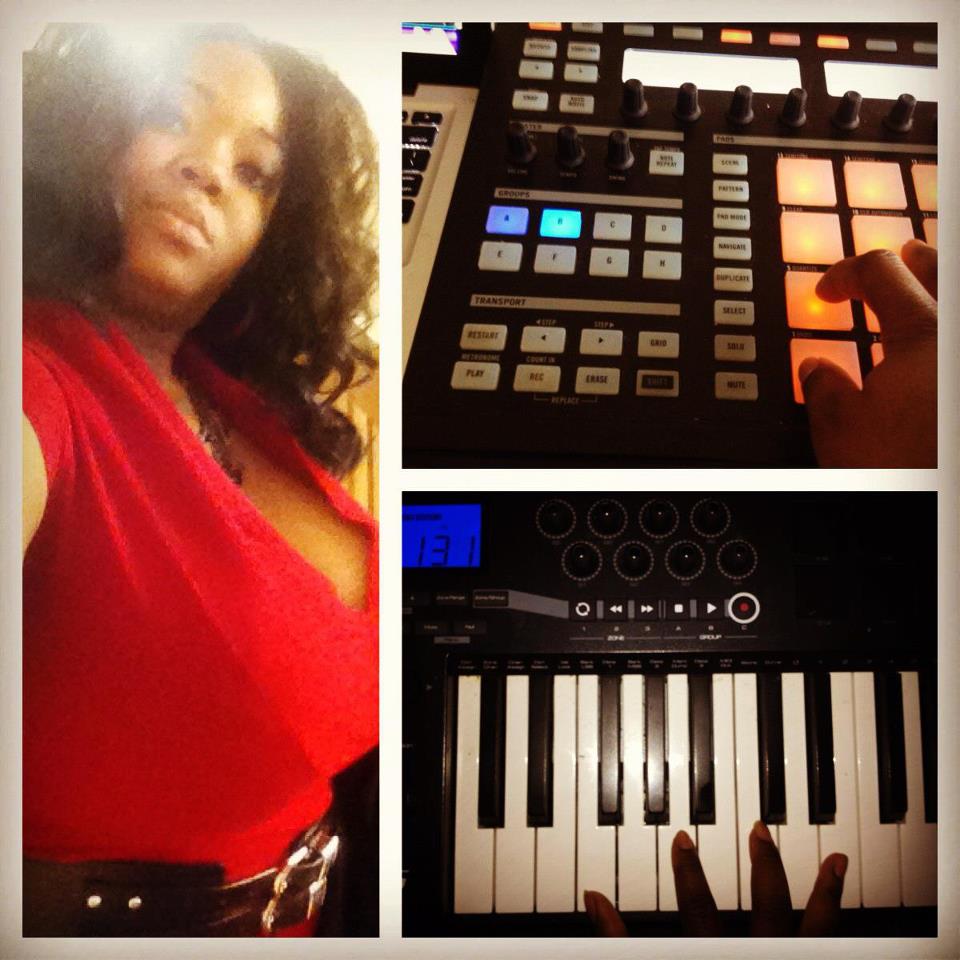
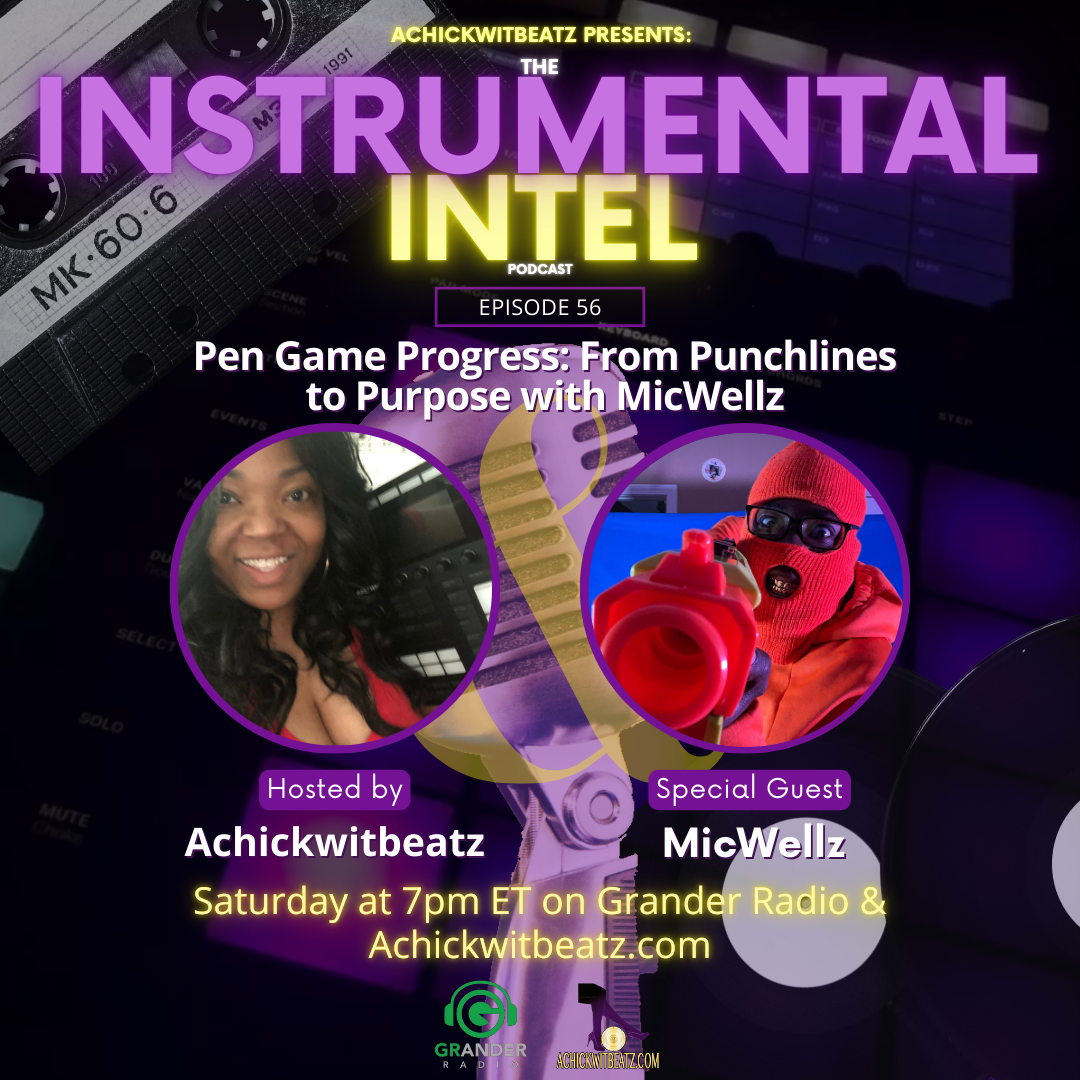






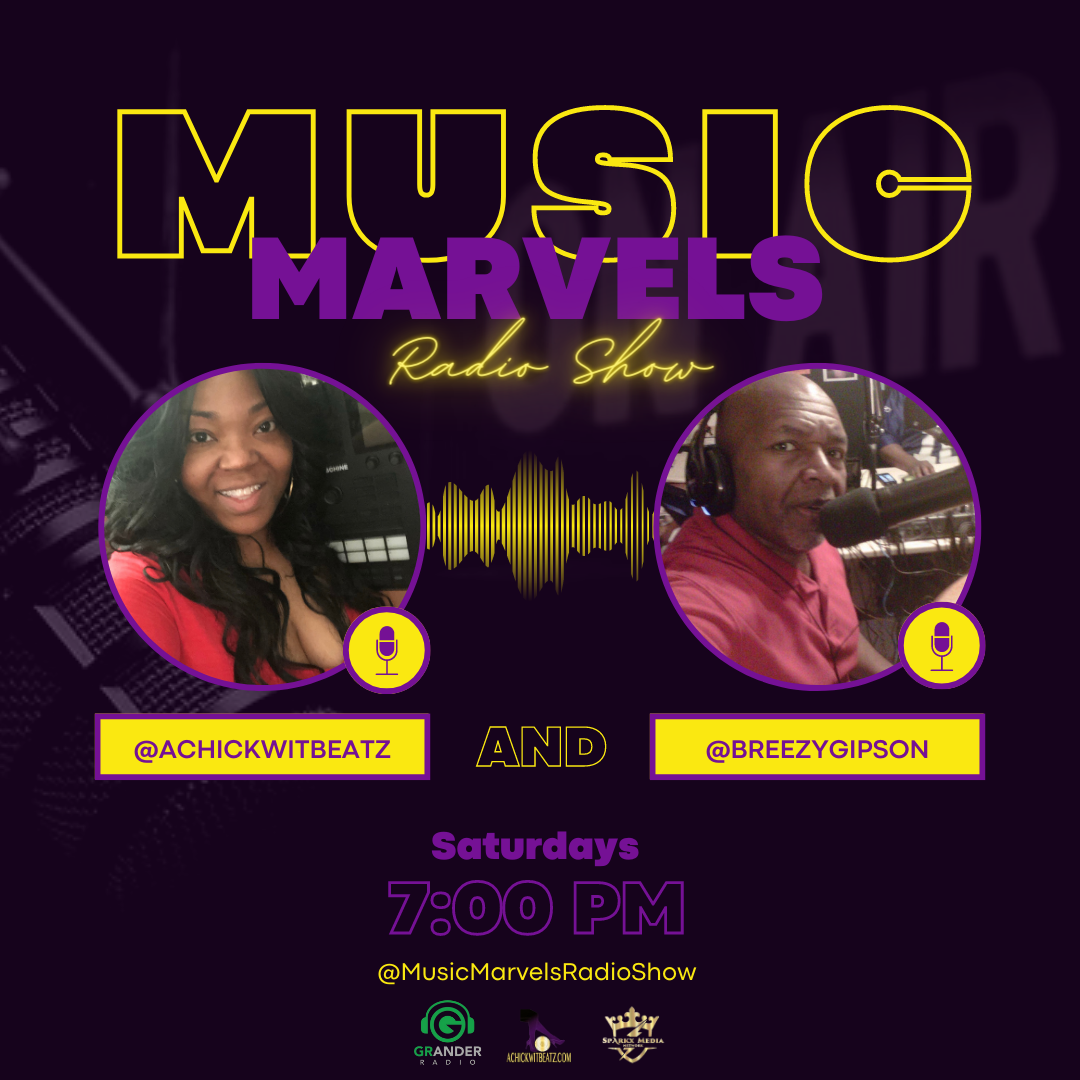
![Hear Here: Achickwitbeatz - Dopamine & Serotonin [Single]](https://images.squarespace-cdn.com/content/v1/52b0b90ae4b0293bfed0d692/1710852808557-EZYGFDIBHLBSIRFOVS1Q/Dopamine+%26+Serotonin.JPG)


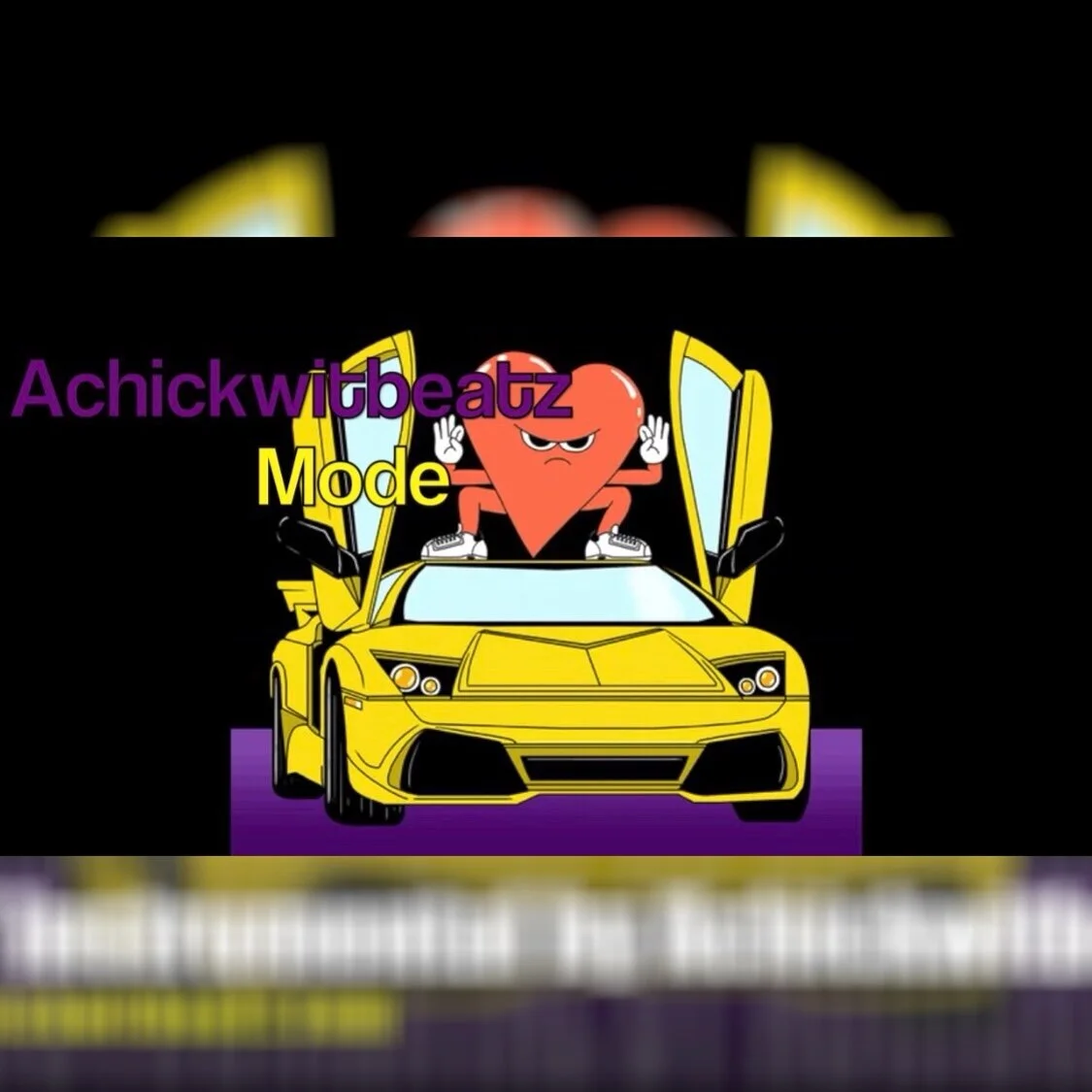
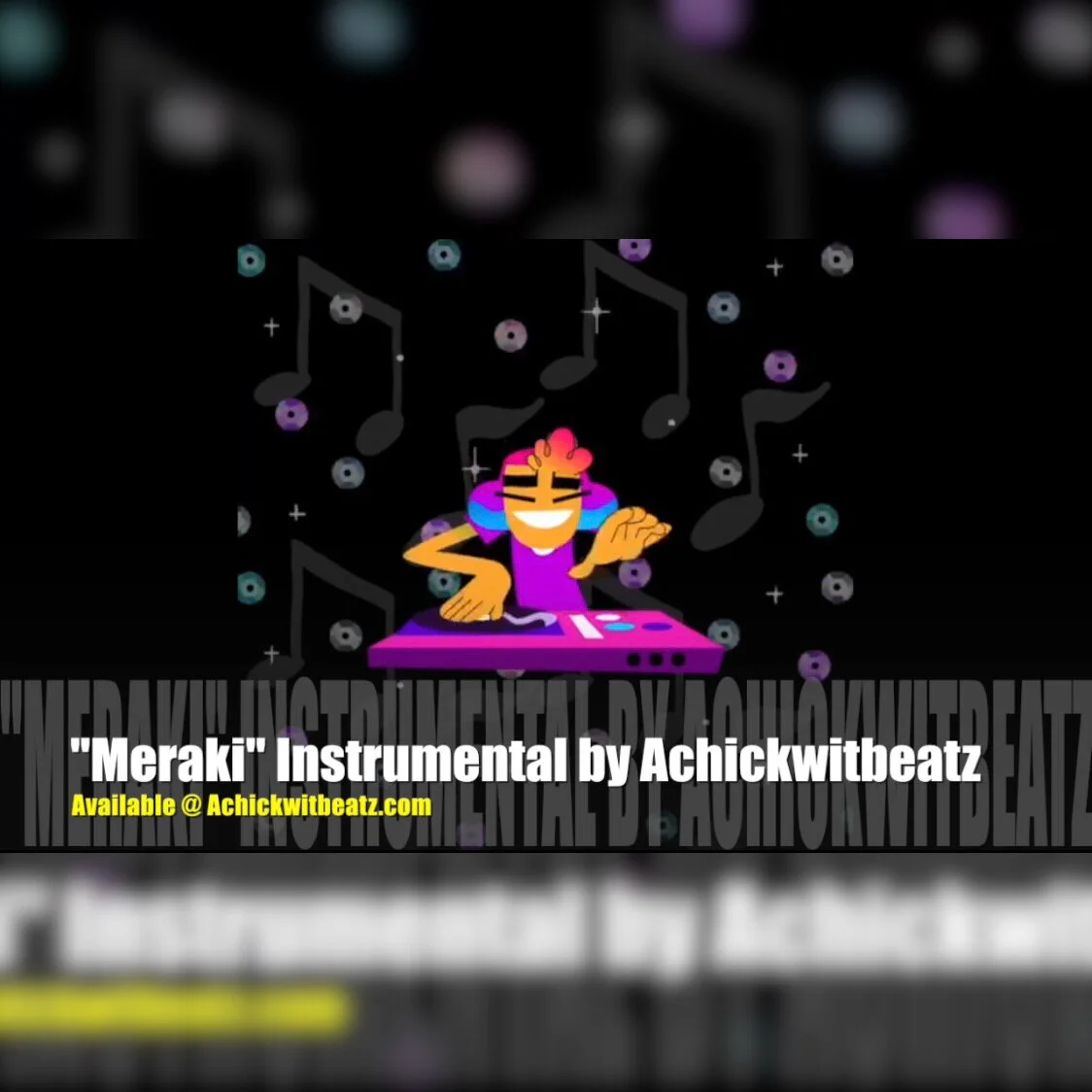





![Hear Here: Dagga Man- "Analytics" [Prod. by Achickwitbeatz]](https://images.squarespace-cdn.com/content/v1/52b0b90ae4b0293bfed0d692/1584638158548-9R55AZLWZIDFJC8LATV6/IMG_2212.JPG)







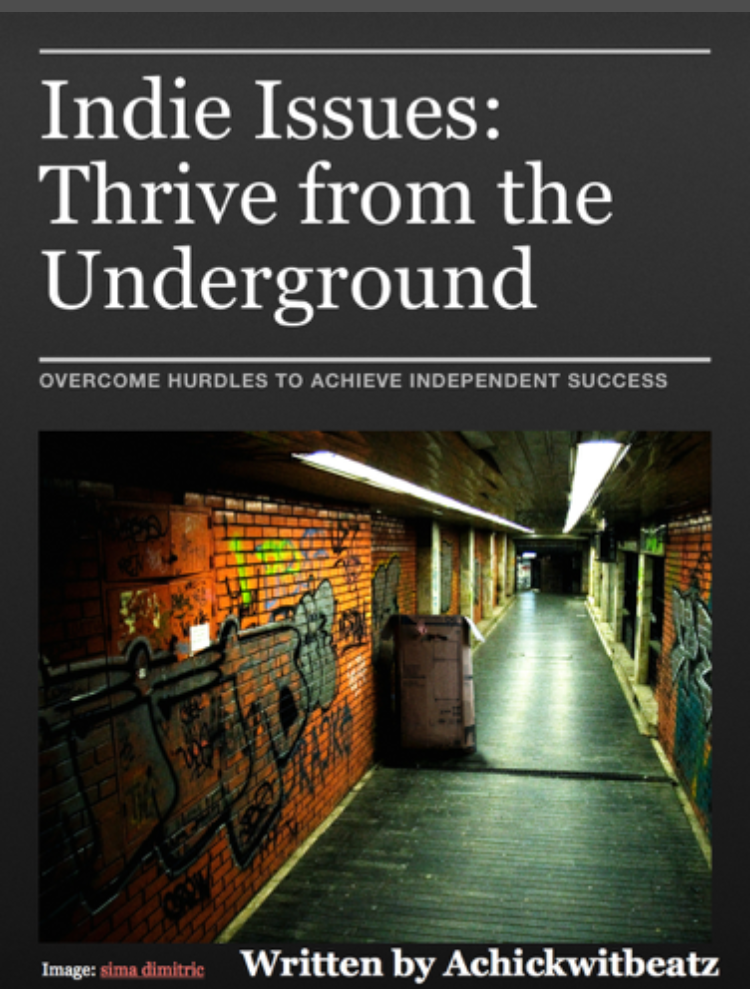
















![Making Music on a Budget [Infographic]](https://images.squarespace-cdn.com/content/v1/52b0b90ae4b0293bfed0d692/1582844361438-3JTE5NT3EL51FHXC0WJI/making-music-on_1929722%25281%2529.jpg)
